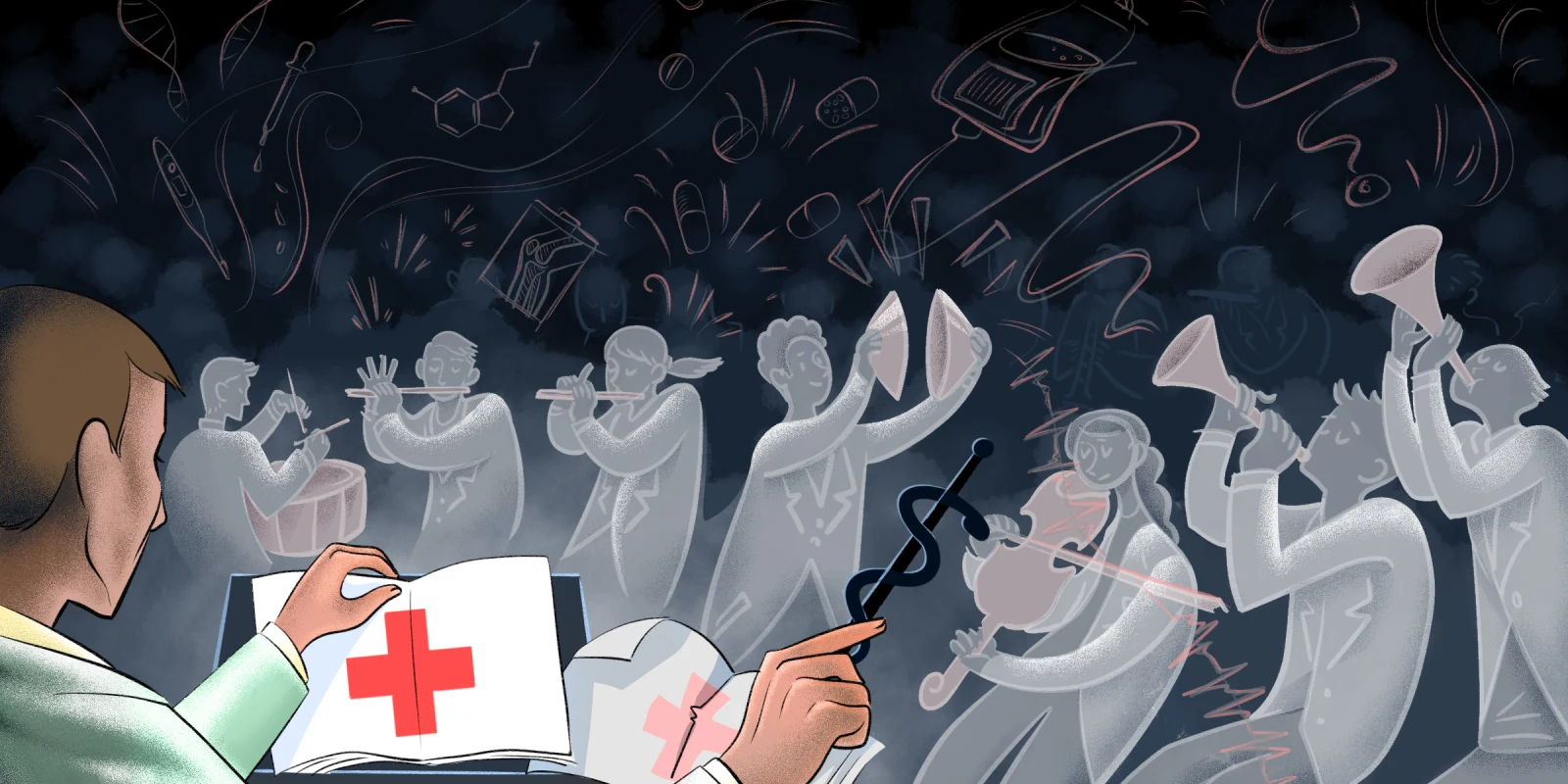
In this setting of the COVID-19 pandemic, we are impressed with the need for strong leadership, and by so many physicians meeting that need and providing courageous, effective, patient-centered leadership — leadership defined as the ability to influence and advocate for the benefit of patients and patient populations. Sometimes physicians are thought of or think of themselves as independent practitioners, but this crisis demonstrates that physicians' patient-centric perspective and data-driven approach is needed more than ever, and will be needed for future health care challenges and crises.
We have seen physician leaders in positions of authority providing technical expertise and working together to communicate a vision based on available information. These leaders are effective by focusing on a patient-centered vision, clearly communicating that vision, and responding humbly and agilely as new information becomes available. One of the most visible physician leaders, Anthony Fauci, MD, has stepped up and acted as a national reasoned, data-driven voice of concern, providing a vision on how to limit the spread and mitigate the impact of COVID-19.
At Duke, physician leaders in positions of authority at all levels have collaborated with community leaders to develop and communicate a plan for us all. For example, these leaders prepared for, and continued to prepare for, the potential overwhelming demand on our health care system. At the same time, they made the considered and patient-centered decision to allow care to continue, including some time-sensitive surgical procedures, for those in need. They have thought critically and recognized that at least for the moment, we are in a different situation than New York, Seattle, or the other leading edges of the U.S. experience.
In uncertain times with incomplete, rapidly changing and frequently conflicting information, not all decisions are going to be good ones. Leaders who make the best decisions do so by focusing on my mentor John Feagin’s leadership mantra: “Do the right thing, at the right time, for the right reason.” To that mantra in this health care crisis, we would add that physician leaders, in fact, all leaders in this crisis need to be patient-centered while balancing the needs of our workforce. We must base leadership decisions on what is best for our current patients, our future patients, and the entire population.
At every level, we share in the effort to address the crisis. Physicians who may not have formal positions of authority have leadership roles as well. Each physician can and should influence their patients, their clinical teams, their families, and their communities. I see the best physician leaders making decisions in ways that are consistent with their institutional leaders’ guidance and appropriate for the patients and teams that they are leading. Physicians lead their clinic teams to prepare for anticipated widespread need for critical care, and to care for their current patients’ needs and those of our coworkers.
There has been rapid adoption of different ways to “do” patient care, supervision, and teaching. Leaders are volunteering in non-traditional roles, they are taking steps that will benefit society at their own economic loss, and they are setting the example for others — for example, taking steps to keep vulnerable patients safe, and substituting for colleagues who have other urgencies.
There is exemplary leadership among residents and fellows. Their clinical responsibilities are evolving, as they care for patients in new ways, accept reassignments to different rotations than they expected, and teach their juniors to manage the uncertainty of what all of this holds for them when the new academic year begins in June. We see this exemplary leadership in medical students, too. While unable to be directly involved with patient care at this time, Duke medical students are supporting our health care system by organizing day care, pet care and other services for clinicians who are on the front lines.
We also see the best physician leaders acting as exemplary followers. Followership is fundamental to effective leadership. Understanding when to follow and when to lead, and when to do both will be an essential skill we all need in this crisis. Importantly, exceptional leaders have been humble enough to learn from hard hit areas in other countries and the United States. They have followed others’ successes and missteps throughout the world and learned about the importance of hand hygiene, social distancing, early viral testing and other new concepts. Effective physician leaders also follow the leadership of other members of our team, such as nurses, therapists, environmental service workers, and those in the lab.
In addition to followership, teamwork is an essential part of effective leadership in this crisis. Our team is rapidly expanding and we see this clearly now even if we did not in the past. We see companies that rapidly scale and deploy testing, medical equipment (from nasal swabs to ventilators), and personal protective equipment. We see companies that may change their core business to move to making ventilators. We see engineers who may help us adapt ventilators to serve more than a single patient. We see construction workers who may rapidly create temporary facilities and other physical structures for care. We see those in the food service industry who work to make sure our community is fed. We see so many — schoolteachers, environmental service workers, public defenders, and others whose collaboration helps us all in this unprecedented time. As leaders, we must recognize and value the contributions of all our teammates, old and new.
Each physician must understand that we all have leadership roles, we must accept those roles, and lead to the best of our abilities. Our patients, our communities, our country, and the world is counting on all of us as physician leaders to step up and act thoughtfully in doing what is best for current, future, and potential patients. For everyone else — please listen to and work with our physician leaders, now and in the future, so we can triumph over this pandemic and prevent future medical disasters.
Kathryn M. Andolsek is Professor in Family Medicine and Community Health and Assistant Dean, Premedical Education at Duke University.
Dean C. Taylor is Professor of Orthopaedic Surgery and Chairman of the Feagin Leadership Program at Duke University.
Click here to see more perspectives on COVID-19 from the Doximity network.
Click here for up-to-date news about COVID-19 on Doximity.
Illustration by April Brust





